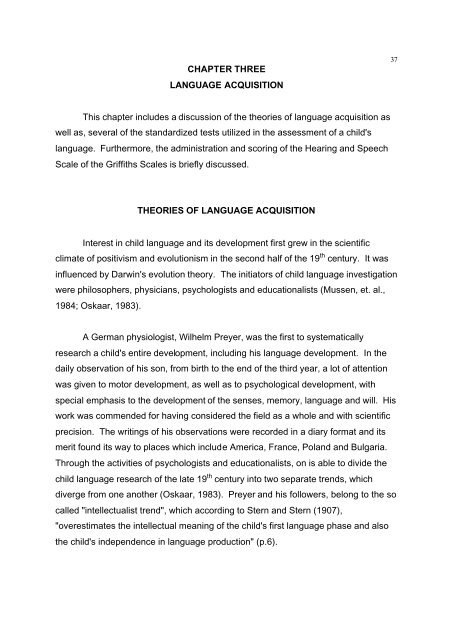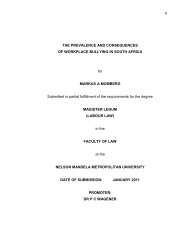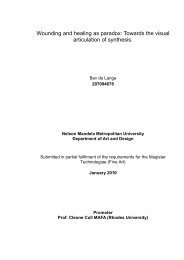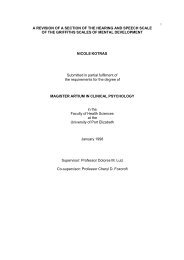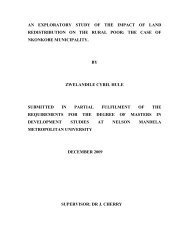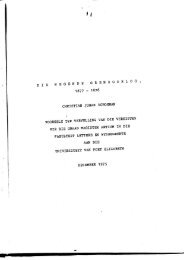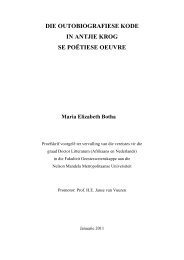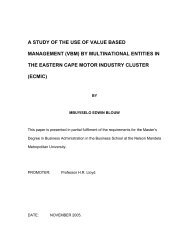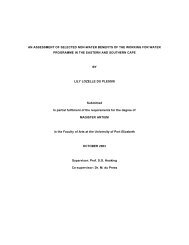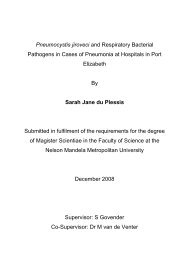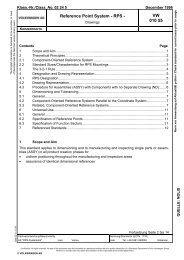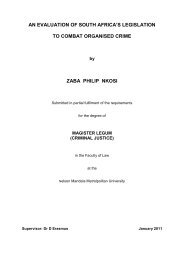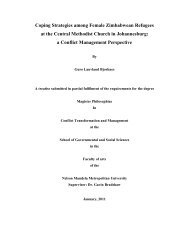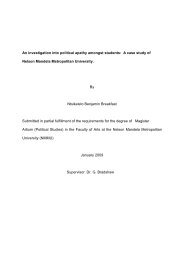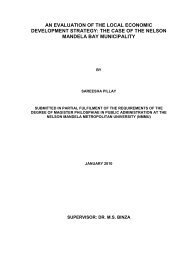nicole kotras masters thesis
nicole kotras masters thesis
nicole kotras masters thesis
Create successful ePaper yourself
Turn your PDF publications into a flip-book with our unique Google optimized e-Paper software.
CHAPTER THREE<br />
LANGUAGE ACQUISITION<br />
This chapter includes a discussion of the theories of language acquisition as<br />
well as, several of the standardized tests utilized in the assessment of a child's<br />
language. Furthermore, the administration and scoring of the Hearing and Speech<br />
Scale of the Griffiths Scales is briefly discussed.<br />
THEORIES OF LANGUAGE ACQUISITION<br />
Interest in child language and its development first grew in the scientific<br />
climate of positivism and evolutionism in the second half of the 19 th century. It was<br />
influenced by Darwin's evolution theory. The initiators of child language investigation<br />
were philosophers, physicians, psychologists and educationalists (Mussen, et. al.,<br />
1984; Oskaar, 1983).<br />
A German physiologist, Wilhelm Preyer, was the first to systematically<br />
research a child's entire development, including his language development. In the<br />
daily observation of his son, from birth to the end of the third year, a lot of attention<br />
was given to motor development, as well as to psychological development, with<br />
special emphasis to the development of the senses, memory, language and will. His<br />
work was commended for having considered the field as a whole and with scientific<br />
precision. The writings of his observations were recorded in a diary format and its<br />
merit found its way to places which include America, France, Poland and Bulgaria.<br />
Through the activities of psychologists and educationalists, on is able to divide the<br />
child language research of the late 19 th century into two separate trends, which<br />
diverge from one another (Oskaar, 1983). Preyer and his followers, belong to the so<br />
called "intellectualist trend", which according to Stern and Stern (1907),<br />
"overestimates the intellectual meaning of the child's first language phase and also<br />
the child's independence in language production" (p.6).<br />
37


